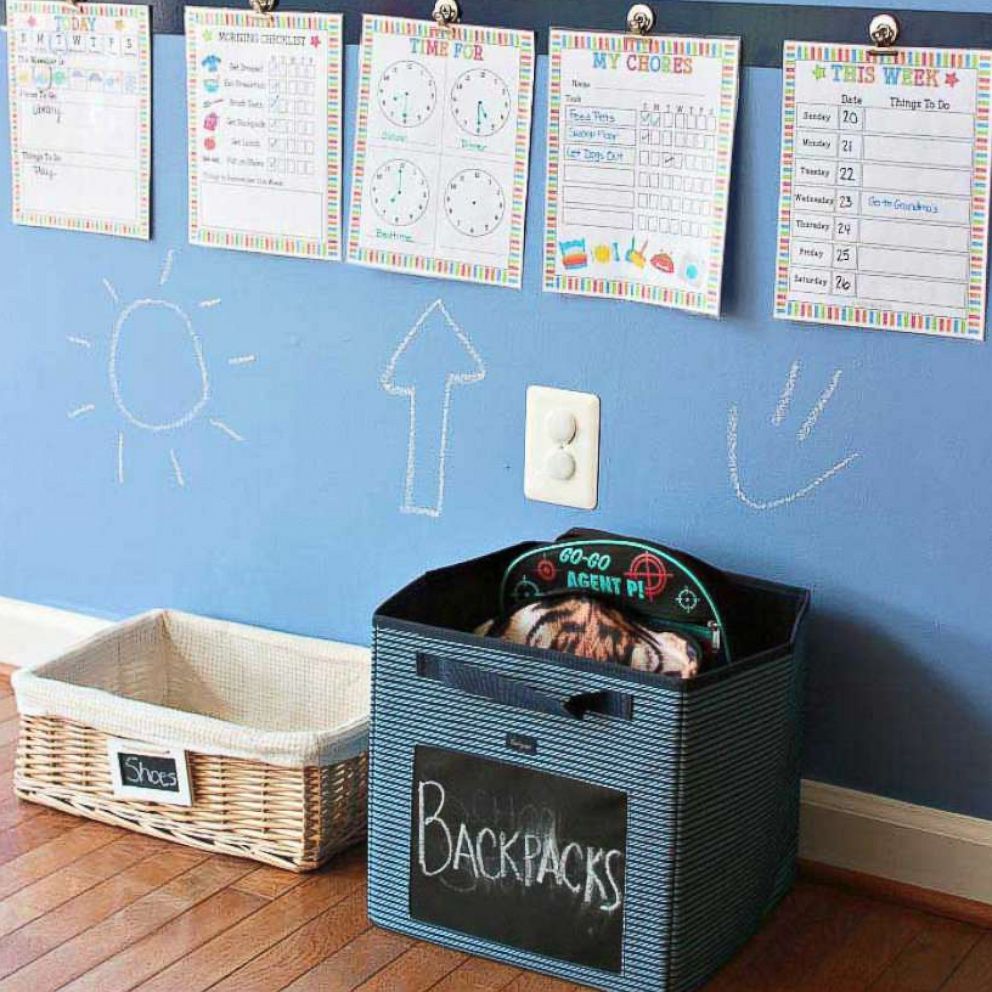Back to school, and forward to a better life for mom
September is the new January. Here are 7 ways moms can hit restart.
Laura Vanderkam is the author of several time-management and productivity books, including "Off the Clock: Feel Less Busy While Getting More Done," and "I Know How She Does It."
Most stories on the back-to-school season lament the craziness. Words such as “chaos” and “survive” feature prominently.
The trouble is that this can become a self-fulfilling prophecy -- go looking for stress and you will find it. A better approach? Embrace the opportunity for a fresh start. With schedules in flux you can build new routines that will help you build the life you want, professionally and personally.
Get our full coverage to head back to school like a boss and own the school year.
After studying thousands of people's schedules -- including 1,001 days in the lives of professional women for my book, "I Know How She Does It" -- I’ve found a few strategies that can help anyone feel better about their time, even with kids and a job in the mix.
1. Make mornings fun
Instead of focusing on the hassle of getting everyone out the door, focus on the possibilities of a new day. At least one or two mornings a week, get up a little before everyone else so you can exercise, read or indulge in a creative hobby. If family dinner is difficult in your house, do family breakfast instead. The cuisine is easier and everyone can strategize for the day to come.
2. Do less
A new school year is a natural time to shift responsibilities off your plate and on to your children's. They're getting older; they can handle more. Great options for delegating: lunch prep, dishes (including loading and emptying the dishwasher), simple dinner prep, laundry, pet care, trash collection, yard work and general tidying.
"Shift responsibilities off your plate and on to your children's"
3. Go back to school yourself
As adults, the next career step isn’t always as obvious as the next grade level is for kids. So carve out some time to think about what you’d like your professional life to look like a year in the future. What would need to happen for you to feel like you’ve moved forward a "grade" in your professional life by next September? Figure out the steps you’d need to take to get there, and then start figuring out which people, projects or new skills could be part of your journey.

4. Institute calendar meetings
Some families like shared calendars, others don't. In any case, if you're co-parenting, have a meeting every week or two to discuss upcoming kid events, work events and who can cover what. That way, if you see you're supposed to attend a conference on a weekend featuring simultaneous wrestling and swim meets, you can plan ahead and limit the stress. Pro tip: Use this calendar meeting to plan (grown-up) fun stuff too. If a favorite band is coming to town in two months, you can decide to buy tickets, book a sitter and then look forward to this date.
5. Embrace 'no'
Many of the most successful — and calm — people I’ve studied have a surprising amount of white space in their schedules. They know that every ‘yes’ is really a ‘no’ to something else. Keeping that in mind will nudge you to say yes and no to the right things. One strategy: Whenever you are asked to do something in the future, ask yourself if you’d do it tomorrow. You know exactly what you could do with your time tomorrow, so the opportunity costs are more clear than they are for, say, December. If the answer is that yes, you would cancel other things to fit in this new request, then by all means, say yes for December. But if the answer is absolutely no for tomorrow, probably that should be the answer for the future too.
6. Plan adventures
One reason to say no to things you don’t want to do is that you free up space to say yes to things you do want to do. For my recent book, Off the Clock, I asked 900 people with full time jobs and families to track their time on a normal Monday. I also asked them how they felt about their time. I found that the people with the most abundant perspective on time were highly likely to have done something memorable or out-of-the-ordinary on the Monday they tracked. Maybe it’s trying a new restaurant for lunch, or taking the family to a playground after dinner instead of watching TV. But if you do something memorable, you will remember your time — and that makes you feel like you have more of it.
7. Get off the phone and reflect
There’s nothing wrong with catching up on email and work at night after the kids go to bed; indeed, I found that half the women I studied for "I Know How She Does It" employed this strategy to work the hours they needed while preserving family time. But try to check email intentionally, rather than in small chunks here and there. In my Off the Clock time diary study, I found that the people who felt most relaxed about their time checked their phones about half as frequently as the people who felt most harried and stressed. The calm folks were also more likely to engage in reflective activities, such as journaling, meditating, praying or even planning and daydreaming. So, next time you’ve got five minutes while you’re waiting for a call, try staring at the clouds instead of deleting junk emails. You’ll probably feel like you have more time.
Laura Vanderkam is the author of several time management and productivity books, including "Off the Clock: Feel Less Busy While Getting More Done," and "I Know How She Does It." She is the co-host, with Sarah Hart-Unger, of the podcast "Best of Both Worlds." She blogs at LauraVanderkam.com.







